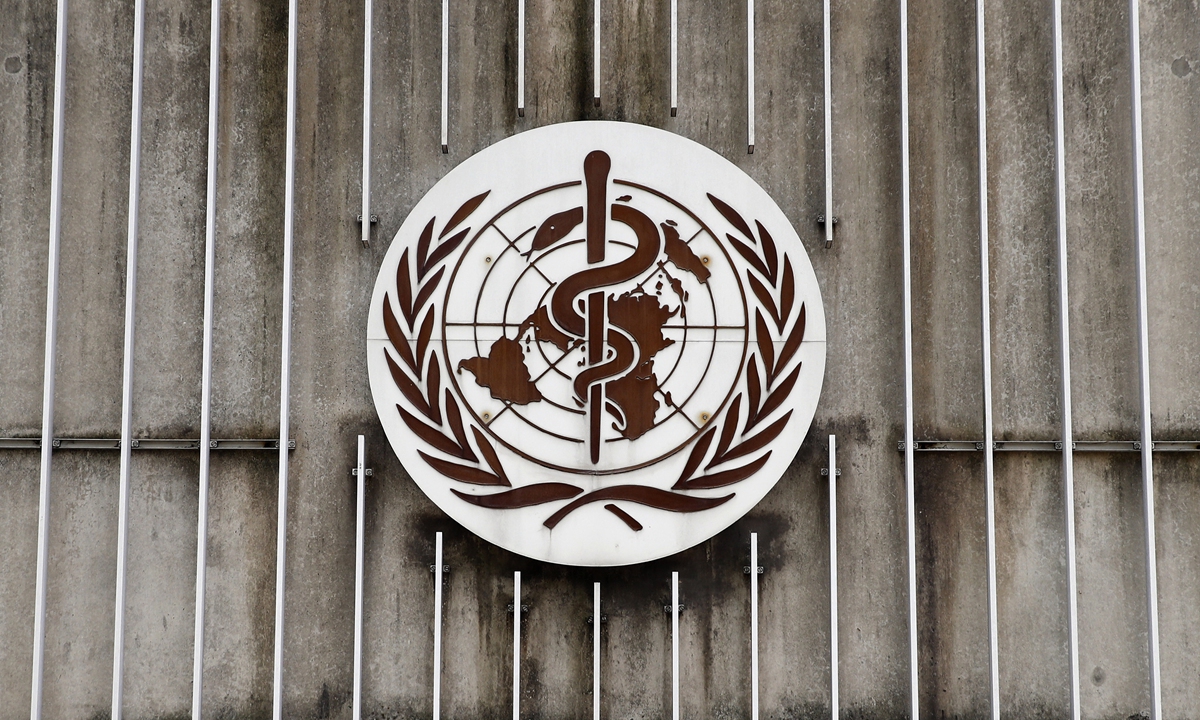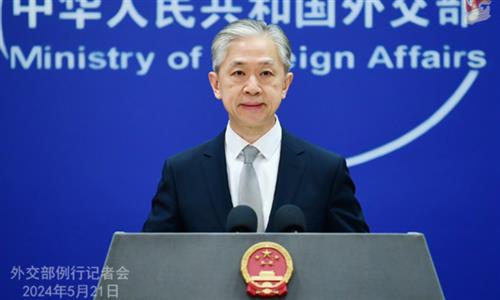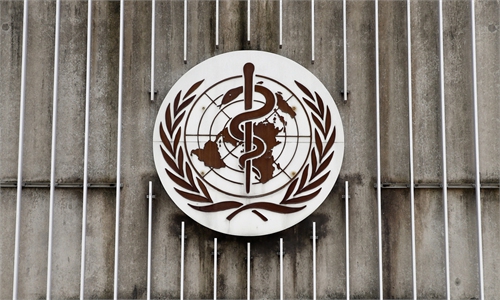Proposal on Taiwan region’s participation as an observer in the WHA seen to be inappropriate and unrealistic: Chinese delegation to the WHA

Signage for the World Health Organization (WHO) Photo:VCG
It is inappropriate and unrealistic for the Democratic Progressive Party (DPP) authorities in the Taiwan region to have incited a very small number of countries to put forward a proposal related to Taiwan island at the World Health Assembly (WHA), the Chinese delegation to the WHA said the proposal to invite Taiwan to participate as an observer in WHA was made due to political manipulation.
Yang Zhilun, minister-counsellor of China’s Permanent Mission to the United Nations Office at Geneva and Other International Organizations in Switzerland, said during a press briefing of the WHA, the highest decision-making body of the World Health Organization (WHO), which will be convened in Geneva, Switzerland, between May 27 and June 1, that all the parties around the world are currently engaging in dialogue and cooperation on how to prevent and respond to epidemics, promote the health and well-being of all humanity, and explore methods and approaches to improve the global health governance system.
At this critical moment, the DPP authorities in Taiwan have incited a very small number of countries to once again put forward a proposal with strong antagonism to “invite Taiwan to participate as an observer in WHA,” which is inappropriate and unrealistic, Yang said.
Yang said the UN General Assembly Resolution 2758 in 1971 and the World Health Assembly Resolution 25.1 in 1972 clearly stated that the representatives of the Government of the People’s Republic of China are recognized as the only legitimate representatives of China in the UN. These resolutions thoroughly and conclusively resolved the issue of representation for all of China, including Taiwan island, in the UN from political, legal, and procedural perspectives.
These legal documents fully and accurately explain the core connotation of the one-China principle, that is, there is only one China in the world, Taiwan is a part of China, and the government of the People’s Republic of China is the sole legal government representing the whole of China, Yang said, pointing out that the proposal related to Taiwan runs counter to the one-China principle and it is illegal, invalid, and legally untenable.
Yang also said that the Chinese central government attaches great importance to the health and well-being of the compatriots in Taiwan. The Chinese central government has made special arrangements for the Taiwan region’s participation in the WHA on the basis of adherence to the one-China principle, fully safeguarding the health rights of the people in Taiwan island.
The vast majority of countries in the international community have reaffirmed to China their commitment to upholding the UN General Assembly Resolution 2758, and their firm support for the one-China principle, opposing Taiwan region’s participation in the WHA, according to Yang. Hundreds of countries have expressed support for China’s position through various means, including sending letters to the director-general of the WHO, Yang said, noting that this reflects the direction of international consensus and the prevailing trend.
Yang said that a very small number of countries are using the WHA to play the “Taiwan card” and engage in attempts to use Taiwan to contain China, standing opposed to the vast majority of countries and becoming the absolute “minority.” Yang believes that the WHA will once again make the correct choice.
Cao Xuetao, deputy director of China’s National Health Commission (NHC), who leads the delegation to the WHA said that China has long been committed to strengthening exchanges and cooperation in the field of health with the World Health Organization (WHO) and other countries, continuously promoting the building of a global community of health for all. China has actively participated in international organizations and regional cooperation mechanisms in the health sector, sharing its experiences and expertise.
According to Cao, after the outbreak of the COVID-19 pandemic, China promptly reported epidemic information for nearly 3,000 times to the international community, including the WHO, relevant countries, and regional organizations. China also shared multiple technical documents on epidemic prevention, control, and treatment plans with over 160 countries and more than 10 international and regional organizations. In addition, China conducted nearly 300 expert discussions or remote meetings, dispatched 38 anti-epidemic expert teams to 34 countries affected by the pandemic, and guided Chinese medical teams stationed in over 50 countries to assist in the epidemic prevention and control efforts of their host nations.
Mi Feng, spokesperson for the NHC, said at the press briefing that the Chinese government has always placed public health in a strategic position of priority development, comprehensively promoting the construction of a healthy China and actively promoting universal health coverage. At present, China has established the world’s largest healthcare service system as well as the world’s largest medical security system in the world.
According to Mi, China participates in the global health governance, enhancing the well-being of people worldwide. The Chinese government persists in sending medical teams to developing countries, taking concrete actions to promote universal health in these countries.


